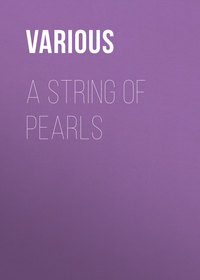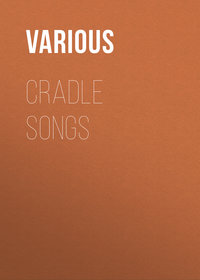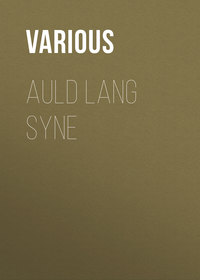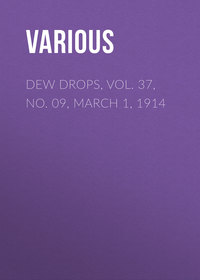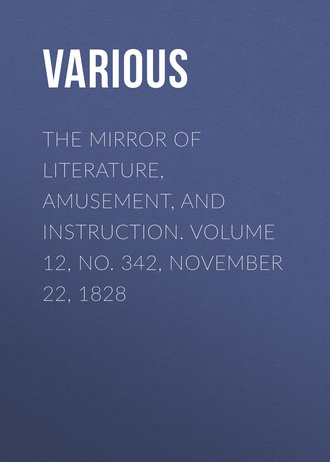
The Mirror of Literature, Amusement, and Instruction. Volume 12, No. 342, November 22, 1828
I now inquired, whether he had been alarmed by the ignorance of the people in the country, so as to shut himself up in so unusual a manner.
"No," he replied, "not on their account wholly. They are ignorant and insolent enough; but it was to protect myself against the governments of Europe, who are determined to get possession of my secret by force. I have been," he exclaimed, "twice fired at in one day through that window, and three times attempted to be poisoned. They believed I had written a book containing my secrets, and to get possession of this book has been their object. To baffle them, I burnt all that I had ever written, and I have so guarded the windows with spring-guns, and have such a collection of combustibles in the range of bottles which stand at your elbow, that I could destroy a whole regiment of soldiers if sent against me." He then related, that as a further protection he lived entirely in that room, and permitted no one to come into the house; while he had locked up every room except that with patent padlocks, and sealed the key-holes.
It would be tedious and impossible to follow Mr. Kellerman through a conversation of two or three hours, in which he enlarged upon the merits of the ancient alchemists, and on the blunders and impertinent assumptions of the modern chemists, with whose writings and names it is fair to acknowledge he seemed well acquainted. He quoted the authorities of Roger and Lord Bacon, Paracelsus, Boyle, Boerhaave, Woolfe, and others, to justify his pursuits. As to the term philosopher's stone, he alleged that it was a mere figure, to deceive the vulgar. He appeared also to give full credit to the silly story about Dee's assistant, Kelly, finding some of the powder of projection in the tomb of Roger Bacon at Glastonbury, by means of which, as was said, Kelly for a length of time supported himself in princely splendour.
I inquired whether he had discovered the blacker than black of Apollonius Tyaneus; and this, he assured me, he had effected; it was itself the powder of projection for producing gold.
Amidst all this delusion and illusion on these subjects, Mr. Kellerman behaved in other respects with great propriety and politeness; and having unlocked the door, he took me to the doors of some of the other rooms, to show me how safely they were padlocked; and on taking leave, directed me in my course towards Bedford.
In a few minutes, I overtook a man, and on inquiring what the people thought of Mr. Kellerman, he told me that he had lived with him for seven years; that he was one of eight assistants whom he kept for the purpose of superintending his crucibles, two at a time relieving each other every six hours; that he had exposed some preparations to intense heat for many months at a time, but that all except one crucible had burst, and that he called on him to observe, that it contained the true "blacker than black." The man protested, however, that no gold had ever been made, and that no mercury had ever been fixed; for he was quite sure, that if he had made any discovery, he could not have concealed it from the assistants; while, on the contrary, they witnessed his severe disappointments, at the termination of his most elaborate experiments.
On my telling the man that I had been in his room, he seemed much astonished at my boldness; for he assured me, that he carried a loaded pistol in every one of his six waistcoat pockets. I learnt also from this man, that he has or had considerable property in Jamaica; that he has lived in the premises at Lilley about twenty-three years, and during fourteen of them pursued his alchemical researches with unremitting ardour; but for the last few years shut himself up as a close prisoner, and lived in the manner I have described.
Here lyeth wrapt in clay,The body of William Wray:I have no more to say.Weever's Epitaphs.Notes of a Reader
COURT OF CHARLES II
In the last No. of the Edinburgh Review, there is an admirably written article on Hallam's "Constitutional History," not a mere essay, but somewhat more like a review than usual. It contains an abundance of florid, bold, and vigorous writing, extending through upwards of 70 pages. Among the most striking passages we notice a parallel between Cromwell and Napoleon, drawn with considerable force. But our extract is from the lighter portion, as the following ludicrous sketches of some of the enormities of Charles II. "Towards the close of the Protectorate, many signs indicated that a time of license was at hand. But the restoration of Charles II rendered the change wonderfully rapid and violent. A deep and general taint infected the morals of the most influential classes, and spread itself through every province of letters. Poetry inflamed the passions; philosophy undermined the principles; divinity itself, inculcating an abject reverence for the court, gave additional effect to its licentious example. … The favourite duchess stamps about Whitehall, cursing and swearing. The ministers employ their time at the council board in making mouths at each other, and taking off each other's gestures for the amusement of the king. The peers at a conference begin to pommel each other, and to tear collars and periwigs. A speaker in the House of Commons gives offence to the court. He is way-laid by a gang of bullies, and his nose is cut to the bone. … The second generation of the statesmen of this reign, were worthy of the schools in which they had been trained, of the gaming table of Grammont, and the tiring room of Nell –." This is but a small portion of the good set terms in which the reviewer illustrates the licentiousness of the times. Speaking of Clarendon, he says, "Mr. Hallam scarcely makes sufficient allowance for the wear and tear which honesty almost necessarily sustains in the friction of political life, and which in times so rough as those through which Clarendon passed, must be very considerable. When these are fairly estimated, we think that his integrity may be allowed to pass muster." Perhaps political honesty is like Joseph Surface's French plate, or the tinsel spread over a pair of Birmingham saleshop candlesticks, whose tenderness will not withstand the wear and tear of conveyance in the purchaser's pocket. But the oddity of the reviewer's comparisons even puts one in good humour with their virulence.
STREET SYMPATHIES
During "the season" the veriest stranger who has an eye and ear, and thoughts, must find in London sufficient to occupy his attention; true, he may start and sigh, to think that of the busy and enormous multitude around him, not one would care, if, treading on yonder bit of orange peel, he should slip off the flagway, and falling beneath the wheel of that immense coal-wagon, have his thigh crushed to atoms, while you'd be saying "Jack Robinson." But if he do sigh, the more fool he; first, because "grieving's a folly," as the old sea song hath it; next because he is mistaken in supposing that no one would feel interested in his misfortune. There are two upon the very flagway with him, who would evince the greatest sympathy in his fate; the one is a surgeon's apprentice, who, with anxious care, would bear him off to his hospital, that he might "try his 'prentice hand" to doctor him while living, and dissect him when dead; and the other is a running reporter to one of the morning papers, who would with gentle and soothing accents inquire his name, condition, and abode, to swell the paragraph, and increase his pay.—Blackwood's Magazine.
LINES TO EDWARD LYTTON BULWER, ON THE BIRTH OF HIS CHILD
My heart is with you, Bulwer, and portraysThe blessings of your first paternal days;To clasp the pledge of purest, holiest faith,To taste one's own and love-born infant's breath,I know, nor would for worlds forget the bliss.I've felt that to a father's heart that kiss,As o'er its little lips you smile and cling,Has fragrance which Arabia could not bring.Such are the joys, ill mock'd in ribald song,In thought, ev'n fresh'ning life our life-time long,That give our souls on earth a heaven-drawn bloom;Without them we are weeds upon a tomb.Joy be to thee, and her whose lot with thine,Propitious stars saw Truth and Passion twine!Joy be to her who in your rising nameFeels Love's bower brighten'd by the beams of Fame!I lack'd a father's claim to her—but knewRegard for her young years so pure and true,That, when she at the altar stood your bride,A sire could scarce have felt more sire-like pride.T. Campbell.The Duc de Laval has the character of being a perfect fool. It is said that on one occasion he talked of having received an anonymous letter, signed by all the officers of his regiment; that on another, he ordered ottomans to be placed in the four corners of his octagon saloon!—Josephine's Memoirs.
CAUSE AND EFFECT
Infinite are the consequences which follow from a single, and often apparently a very insignificant circumstance. Paley himself narrowly escaped being a baker; here was a decision upon which hung in one scale, perhaps, the immortal interests of thousands, and, in the other, the gratification of the taste of the good people of Giggleswick for hot rolls. Cromwell was near being strangled in his cradle by a monkey; here was this wretched ape wielding in his paws the destinies of nations. Then, again, how different in their kind, as well as in their magnitude, are these consequences from anything that might have been à priori expected. Henry VIII. is smitten with the beauty of a girl of eighteen; and ere long,
"The Reformation beams from Bullen's eyes."Charles Wesley refuses to go with his wealthy namesake to Ireland, and the inheritance, which would have been his, goes to build up the fortunes of a Wellesley instead of a Wesley; and to this decision of a schoolboy (as Mr. Southey observes) Methodism may owe its existence, and England its military—and, we trust we may now add, its civil and political—glory—Quarterly Rev.
SERVANTS
A fund has lately been established at Stockholm, from which it is intended to reward good and faithful servants. The king has contributed to it 1,000 crowns; the prince royal 500; and the princess royal 300. This has been suggested as an example worthy of our imitation; many legacies, &c. have from time to time been bequeathed for the encouragement of faithful servants in England; some are claimed, but the majority are shamefully misapplied by those to whom their distribution has been entrusted.
LONDON LUXURIES
A capital like London is a Maelstrom—an immense whirlpool—whose gyrations sweep in whatever is peculiarly desirable from the most distant regions of the empire—so active becomes the love of gain when set in motion by the love of luxury. We recollect once being on shipboard to the north of Duncan's Bay Head, and out of sight of land, the nearest being the Feroe Islands:—we were walking the deck, watching a whale which was gamboling at some distance, throwing up his huge side to the sun, and sending ever and anon a sheet of water and foam from his nostrils. Our thoughts were on Hecla and on the icebergs of the Pole, on the Scalds of Iceland and the sea-kings of Norway, when a sail hove in sight: we asked what craft it was—and were answered, "a Gravesend brig dredging for lobsters." Never was enchantment so effectually broken—never stage-trick in pantomime more successfully played off. Scene changes from Feroe and Iceland to the Albion in Aldersgate-street—Exeunt Scald, champion, and whale—Enter common councilman, turbot, and lobster-sauce.—Quarterly Rev.
THE BEAUTIFUL
To be convinced that, at some period or another of their history, the Egyptians had conceived a beau-ideal superior to the beautiful which nature habitually produced in their country, we have only to examine the young Memnon, at the British Museum, and the heads of many of the sphinxes which remain.—Weekly Rev.
ALGEBRA
Algebra I was charmed with, and found so much pleasure in resolving its questions, that I have often sat till morning at the engaging work, without a notion of its being day till I opened the shutters of my closet. I recommend this study in particular to young gentlemen, and am satisfied, if they would but take some pains at first to understand it, they would have so great a relish for its operations, as to prefer them many an evening to clamorous pleasures; or, at least, not be uneasy for being alone now and then, since their algebra was with them.—Life of John Buncle.
A LUCKY MATCH
The late Mr. Locke, of Norbury Park, commissioned one Jenkins, a dealer in pictures, residing at Rome, to send him any piece of sculpture which might not exceed fifty guineas. Jenkins sent a head of Minerva, which Mr. Locke, not liking, returned, paying the carriage, and all other expenses. Nollekens, who was then also at Rome, having purchased a trunk of Minerva for fifty pounds, upon the return of this head, found that its proportion and character accorded with his torso. This discovery induced him to accept an offer made by Jenkins of the head itself; and 220 guineas to share the profits. After Nollekens had joined the head and trunk, or, what is called "restored it," which he did at the expense of twenty guineas more for stone and labour, it proved a most fortunate hit, for they sold it for the enormous sum of 1,000 guineas! and it is now at Newby, in Yorkshire.—Nollekens and his Times.
NELSON
We received the following little anecdote from a letter of a gentleman now at the head of the medical profession, with which he favoured us shortly after perusing Salmonia. "I was (says our friend) at the Naval Hospital, at Yarmouth, on the morning when Nelson, after the battle of Copenhagen (having sent the wounded before him,) arrived at the Roads, and landed on the jutty. The populace soon surrounded him, and the military were drawn up in the market-place ready to receive him; but making his way through the crowd, and the dust, and the clamour, he went straight to the hospital. I went round the wards with him, and was much interested in observing his demeanour to the sailors; he stopped at every bed, and to every man he had something kind and cheering to say. At length, he stopped opposite a bed on which a sailor was lying who had lost his right arm close to the shoulder-joint, and the following short dialogue passed between, them:"—Nelson. "Well, Jack, what's the matter with you?"—Sailor. "Lost my right arm, your honour."—Nelson paused, looked down at his own empty sleeve, then at the sailor, and said playfully, "Well, Jack, then you and I are spoiled for fishermen—cheer up, my brave fellow." And he passed briskly on to the next bed; but these few words had a magical effect upon the poor fellow, for I saw his eyes sparkle with delight as Nelson turned away and pursued his course through the wards. As this was the only occasion on which I saw Nelson, I may, possibly, overrate the value of the incident.—Q. Rev.
THE BRITISH ALMANAC
This work, though only in its second year, is too well known to be benefited by our recommendation. As a compilation, with occasional originality, it is one of the best executed labours of the Society from whom it emanates, and who, from the multiplicity of facts here assembled, may be called "The Society for the" Condensation "of Useful Knowledge."
In the Almanac for 1829 we notice several improvements upon that of last year. The "Remarks on Weather" are valuable; and the "Garden Plants in Flower" in each month, in themselves extremely interesting, contrast the unchanging course of nature with the grand revolutions and events of the column of "Anniversaries." Thus, what different emotions are produced by reading April 6, "First Abdication of Bonaparte, 1814," and "Primrose Peerless (Narcissus biflorus) in flower." The "Useful Remarks," though not a new feature in an almanac, are profitable helps to social duties, especially when drawn from such a source as Owen Feltham's Resolves—a golden treasury of world-knowledge, which may serve as a text-book for every family. Among the useful facts we notice the following:—"By a parliamentary return of the year 1828 we find that the stamp duty paid upon the almanacs of England amounts to 30,136l. 3s. 9d.—which, the duty being fifteen-pence upon each almanac, exhibits a circulation of 451,593 annually."
Remarks on Weather"The mean temperature of London is about 2° higher than that of the surrounding country; the difference exists chiefly in the night, and is greatest in winter and least in summer."
"Mr. Howard is of opinion, from a careful comparison of a long series of observations, that a wet spring is an indication of a dry time for the ensuing harvest."
"The greatest depression of temperature in every month happens, all other circumstances being the same, a short time before sun-rise."
"There are only two months, namely, July and August, in which, taking into consideration the power of radiation, vegetation, in certain situations, is not exposed to a temperature of 32°."
"The temperature of August is but little reduced, owing to the prevalence of hot nights. The action of the sun's rays is considerably assisted by the warm earth which radiates heat into the air; while, in spring, it absorbs every day a proportion of the heat which the sun produces."
"October—Now that the fruits of the earth are laid in store, the increase of wet is attended by no injurious effects, the remaining heat of the earth is preserved from needless expenditure, and guarded from dissipation, by an increasing canopy of clouds, by which the effect of radiation is greatly reduced."
"The comparative warmth of November is owing to the heat given out by the condensation of the vapour in the atmosphere into rain."
"The mean temperature of the whole year is not found to vary, in different years, more than four degrees and a half."
Such as hold superstition sweet to the soul, and love to exercise their ingenuity in hieroglyphics, the baseless grounds of tea, and lucky dreams and omens, will find little amusement in the British Almanac; but their absence is more than supplied by information "which almost every man engaged in the world requires."
THE SKETCH BOOK
A VISION OF PURGATORY
By William Maginn, Esq.
The churchyard of Inistubber is as lonely a one as you would wish to see on a summer's day, or avoid on a winter's night. Under the east window of the church is a mouldering vault of the De Lacys,—a branch of a family descended from one of the conquerors of Ireland; and there they are buried, when the allotted time calls them to the tomb. Sir Theodore De Lacy had lived a jolly, thoughtless life, rising early for the hunt, and retiring late from the bottle. A good-humoured bachelor who took no care about the management of his household, provided that the hounds were in order for his going out, and the table ready on his coming in. As for the rest,—an easy landlord, a quiet master, a lenient magistrate (except to poachers,) and a very excellent foreman of a grand jury. He died one evening while laughing at a story which he had heard regularly thrice a week for the last fifteen years of his life, and his spirit mingled with the claret. In former times when the De Lacys were buried, there was a grand breakfast, and all the party rode over to the church to see the last rites paid. The keeners lamented; the country people had a wake before the funeral, and a dinner after it—and there was an end. But with the march of mind comes trouble and vexation. A man has now-a-days no certainty of quietness in his coffin—unless it be a patent one. He is laid down in the grave, and the next morning finds himself called upon to demonstrate an interesting fact! No one, I believe, admires this ceremony, and it is not to be wondered at that Sir Theodore De Lacy held it in especial horror. "I'd like," said he one evening, "to catch one of the thieves coming after me when I'm dead—By the God of War, I'd break every bone in his body;—but," he added with a sigh, "as I suppose I'll not be able to take my own part then, upon you I leave it, Larry Sweeney, to watch me three days and three nights after they plant me under the sod. There's Doctor Dickenson there, I see the fellow looking at me—fill your glass, Doctor—here's your health! and shoot him, Larry, do you hear, shoot the Doctor like a cock, if he ever comes stirring up my poor old bones from their roost of Inistubber." "Why, then," Larry answered, accepting the glass which followed this command, "long life to both your honours; and it's I that would like to be putting a bullet into Doctor Dickenson—heaven between him and harm—for hauling your honour away, as if you was a horse's head, to a bonfire. There's nothing, I 'shure you, gintlemin, poor as I am, that would give me greater pleasure." "We feel obliged, Larry" said Sir Theodore, "for your good wishes." "Is it I pull you out of the grave, indeed!" continued the whipper-in, for such he was, —"I'd let nobody pull your honour out of any place, saving 'twas purgatory; and out of that I'd pull you myself, if I saw you going there." "I am of opinion, Larry," said Doctor Dickenson, "you would turn tail if you saw Sir Theodore on that road. You might go further, and fare worse, you know." "Turn tail!" replied Larry, "it is I that wouldn't—I appale to St. Patrick himself over beyond"—pointing to a picture of the Prime Saint of Ireland, which hung in gilt daubery behind his master's chair, right opposite to him. To Larry's horror and astonishment, the picture fixing its eyes upon him, winked with the most knowing air, as if acknowledging the appeal. "What makes you turn so white then at the very thought," said the doctor, interpreting the visible consternation of our hero in his own way. "Nothing particular," answered Larry; "but a wakeness has come strong over me, gintlemin, and if you'd have no objection, I'd like to go into the air for a bit." Leave was of course granted, and Larry retired amid the laughter of the guests—but as he retreated, he could not avoid casting a glance on the awful picture—and again the Saint winked, with a most malicious smile. It was impossible to endure the repeated infliction, and Larry rushed down the stairs in an agony of fright and amazement. "May be," thought he, "it might be my own eyes that wasn't quite steady—or the flame of the candle. But no—he winked at me as plain as ever I winked at Judy Donaghue of a May morning. What he manes by it I can't say—but there's no use of thinking about it—no, nor of talking neither, for who' d believe me if I tould them of it?"
The next evening Sir Theodore died, as has been mentioned; and in due time thereafter was buried according to the custom of the family, by torch-light, in the churchyard of Inistubber. All was fitly performed; and although Dickenson had no design upon the jovial knight—and if he had not, there was nobody within fifteen miles that could be suspected of such an outrage,—yet Larry Sweeney was determined to make good his promise of watching his master. "I'd think little of telling a lie to him, by the way of no harm when he was alive," said he, wiping his eyes, as soon as the last of the train had departed, leaving him with a single companion in the lonely cemetery; "but now that he's dead—God rest his soul!—I'd scorn it. So Jack Kinaley, as behoves my first cousin's son, stay you with me here this blessed night, for betune (between) you and I, it an't lucky to stay by one's self in this ruinated old rookery, where ghosts, God help us, is as thick as bottles in Sir Theodore's cellar!" "Never you mind that, Larry," said Kinaley, a discharged soldier, who had been through all the campaigns of the Peninsula; "never mind, I say, such botherations. Han't I lain in bivouack on the field at Salamanca, and Tallawara, and the Pyrumnees, and many another place beside, where there was dead corpses lying about in piles, and there was no more ghosts than kneebuckles in a ridgemint of Highlanders. Here, let me prime them pieces, and hand us over the bottle; we'll stay snug under this east window, for the wind's coming down the hill, and I defy"—"None of that bould talk, Jack," said his cousin; "as for what ye saw in foreign parts, of dead men killed afighting, sure that's nothing to the dead—God rest 'em!—that's here. There you see, they had company one with the other, and being killed fresh-like that morning, had no heart to stir; but here, faith! 'tis a horse of another colour." "May be it is," said Jack, "but the night's coming on; so I'll turn in. Wake me if you sees any thing; and after I've got my two hours' rest, I'll relieve you."



